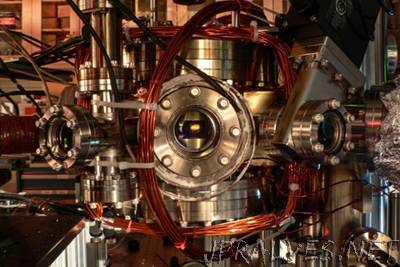
“Researchers have taken an important step toward the long-sought goal of a quantum computer, which in theory should be capable of vastly faster computations than conventional computers, for certain kinds of problems. The new work shows that collections of ultracold molecules can retain the information stored in them, for hundreds of times longer than researchers have previously achieved in these materials. These two-atom molecules are made of sodium and potassium and were cooled to temperatures just a few ten-millionths of a degree above absolute zero (measured in hundreds of nanokelvins, or nK). The results are described in a report this week in Science, by Martin Zwierlein, an MIT professor of physics and a principal investigator in MIT’s Research Laboratory of Electronics; Jee Woo Park, a former MIT graduate student; Sebastian Will, a former research scientist at MIT and now an assistant professor at Columbia University, and two others, all at the MIT-Harvard Center for Ultracold Atoms. Many different approaches are being studied as possible ways of creating qubits, the basic building blocks of long-theorized but not yet fully realized quantum computers. Researchers have tried using superconducting materials, ions held in ion traps, or individual neutral atoms, as well as molecules of varying complexity. The new approach uses a cluster of very simple molecules made of just two atoms.”
